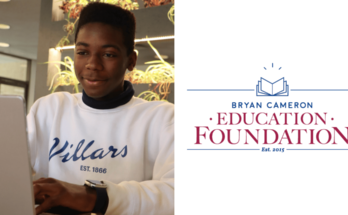Studying in the United States opens the door to an entirely new academic and cultural experience. One of the most enriching and eye-opening parts of life in America is participating in its diverse and deeply rooted holiday traditions. For international students, understanding these holidays—both national and cultural—is essential not only for integration but also for making the most out of your time in the U.S.
This guide will walk you through the major American holidays, their meanings, how they’re typically celebrated, and what you, as an international student, can expect during each one. From campus closures to festive traditions and cultural customs, here’s everything you need to know about navigating U.S. holidays with confidence and enthusiasm.
Why Understanding U.S. Holidays Matters
Holidays are more than just days off from school or work—they’re windows into a country’s identity, values, and history. For international students, participating in holiday traditions is a powerful way to:
- Make new friends
- Improve cultural literacy
- Share your own traditions in return
- Feel more at home in a new environment
In the U.S., holidays can be religious, historical, cultural, or purely celebratory. Some are observed nationwide and others may vary by region, state, or even city. Many colleges also organize campus-wide events that allow students of all backgrounds to take part.
Key Federal and National Holidays
Let’s explore the major national holidays in the U.S.—what they commemorate, when they’re held, and how they’re celebrated.
1. New Year’s Day – January 1
What It Celebrates:
The beginning of the Gregorian calendar year.
Traditions:
- Fireworks at midnight on December 31 (New Year’s Eve)
- Countdown parties
- Resolutions for the new year
What Students Should Know:
Campuses may be closed for winter break. Public transportation may run on a limited schedule on January 1.
2. Martin Luther King Jr. Day – Third Monday in January
What It Celebrates:
The life and legacy of civil rights leader Dr. Martin Luther King Jr.
Traditions:
- Community service and volunteerism
- Educational events, documentaries, and panel discussions
- Reflection on social justice
What Students Should Know:
This is a great time to learn about U.S. history and racial equality. Some colleges offer “Day of Service” activities.
3. Presidents’ Day – Third Monday in February
What It Celebrates:
Originally honoring George Washington’s birthday, it now celebrates all U.S. presidents.
Traditions:
- Sales and discounts in retail stores
- School closures
- Historical programming on TV and in museums
What Students Should Know:
Not all schools close on this day. It’s more low-key but often used as a short break from classes.
4. Memorial Day – Last Monday in May
What It Celebrates:
Honoring U.S. military personnel who died in service.
Traditions:
- Parades
- Family barbecues
- Visiting cemeteries
What Students Should Know:
This unofficially marks the start of summer. Most campuses are closed, and many students travel or relax with friends.
5. Independence Day – July 4
What It Celebrates:
The adoption of the Declaration of Independence in 1776.
Traditions:
- Fireworks
- Parades
- Patriotic music and American flags
- Cookouts and picnics
What Students Should Know:
If you’re on campus during the summer, look for fireworks shows and local events. Wear red, white, and blue to blend in.
6. Labor Day – First Monday in September
What It Celebrates:
The contributions of American workers.
Traditions:
- Long weekend vacations
- Community festivals
- Back-to-school events
What Students Should Know:
It’s typically the last holiday before the full swing of the academic year. Great time to relax before studies intensify.
7. Columbus Day / Indigenous Peoples’ Day – Second Monday in October
What It Celebrates:
Originally marked Christopher Columbus’s landing in the Americas. Many now observe Indigenous Peoples’ Day to honor Native American history and culture.
Traditions:
- Parades (especially in Italian-American communities)
- Cultural events and educational forums
What Students Should Know:
The name and celebration vary by region. Some schools recognize it as a holiday; others do not.
8. Halloween – October 31
What It Celebrates:
Rooted in ancient Celtic traditions, it has evolved into a fun, costume-centered celebration.
Traditions:
- Dressing in costumes
- Trick-or-treating for children
- Haunted houses and parties
- Pumpkin carving
What Students Should Know:
Many college campuses host costume parties and themed events. You can join the fun by dressing up—just be culturally sensitive and avoid controversial costumes.
9. Veterans Day – November 11
What It Celebrates:
Honors U.S. military veterans.
Traditions:
- Military parades
- Flag-raising ceremonies
- Moment of silence at 11:11 AM
What Students Should Know:
Some campuses may hold ceremonies. It’s a time of respect rather than celebration.
10. Thanksgiving – Fourth Thursday in November
What It Celebrates:
A day of giving thanks for the harvest and blessings of the year.
Traditions:
- Turkey dinner with stuffing, cranberry sauce, and pie
- Watching football
- Spending time with family
What Students Should Know:
Campuses usually close for a few days. If you don’t have local family, some organizations or student groups host “Friendsgiving” events where international students are invited to celebrate together.
11. Christmas – December 25
What It Celebrates:
A Christian holiday celebrating the birth of Jesus Christ, widely celebrated culturally as well.
Traditions:
- Decorating Christmas trees
- Exchanging gifts
- Family meals
- Christmas lights and music
What Students Should Know:
Most campuses are closed for winter break. Even if you don’t celebrate religiously, it’s a great time to enjoy festive lights, local events, and cultural exchanges.
Other Cultural and Religious Observances
Many Americans also celebrate holidays based on their ethnic or religious background. These may not be national holidays but are widely observed in different communities.
Examples Include:
- Hanukkah (Jewish) – Festival of lights in December
- Eid al-Fitr and Eid al-Adha (Muslim) – Celebrated after Ramadan and during Hajj
- Diwali (Hindu) – Festival of lights in October/November
- Lunar New Year (Chinese, Vietnamese, Korean) – January or February
- Kwanzaa (African American) – December 26–January 1
What Students Should Know:
Colleges often host multicultural celebrations for these events. You can also share your own traditions with classmates or cultural clubs.
How Holidays Affect Campus Life
1. Academic Schedule
- Federal holidays usually mean no classes.
- Check your academic calendar early and plan around midterms, finals, and breaks.
2. Campus Services
- Dining halls, libraries, and shuttle services may have limited hours or close completely.
- Plan ahead for food, travel, or any personal needs during long weekends or breaks.
3. Travel and Transportation
- U.S. holidays often involve heavy travel.
- Book flights, buses, or trains well in advance—especially for Thanksgiving, Christmas, and spring break.
4. Social Life and Inclusion
- Don’t be shy about asking to join a friend’s holiday celebration.
- Student organizations may host inclusive events.
- If you feel isolated during holidays, reach out to your international office or campus wellness center—they’re there to help.
Tips for Participating in U.S. Holiday Traditions
1. Be Curious and Respectful
You may not fully understand the meaning behind every celebration, and that’s okay. Ask questions, listen, and participate with a spirit of openness.
2. Share Your Own Traditions
American campuses are multicultural. Hosting your own cultural holiday event—like a Diwali night, Eid dinner, or Lunar New Year celebration—can be a great way to educate others and make connections.
3. Use Holidays to Build Friendships
Invite classmates to join you for your traditional celebrations, and accept invitations when others extend them. These social moments often become your most memorable experiences.
4. Stay Safe and Responsible
Some holidays, like Halloween and New Year’s Eve, can involve parties or alcohol. Make informed decisions and look out for yourself and your peers.
5. Celebrate on a Budget
Don’t feel pressured to spend money. You can participate in many holiday traditions—like watching parades or cooking a simple meal—without spending much.
Common Holiday Phrases You’ll Hear
Here are a few expressions commonly used during U.S. holidays:
- “Happy New Year!” – January 1
- “Happy Valentine’s Day!” – February 14
- “Happy Fourth of July!” – Independence Day
- “Happy Halloween!” – October 31
- “Happy Thanksgiving!” – Thanksgiving
- “Merry Christmas!” / “Happy Holidays!” – December
- “Season’s Greetings” – Winter season
Using these greetings is a great way to connect with others.
Final Thoughts
As an international student, U.S. holidays can offer a vibrant, enriching layer to your academic journey. From massive nationwide celebrations like Independence Day to cozy campus “Friendsgiving” dinners, these occasions allow you to explore American culture firsthand and build meaningful relationships.
Understanding and embracing these traditions can ease culture shock, help you feel more at home, and turn your stay in the U.S. into an unforgettable cultural exchange. So, mark your calendar, bring your curiosity, and don’t be afraid to join the celebration!





